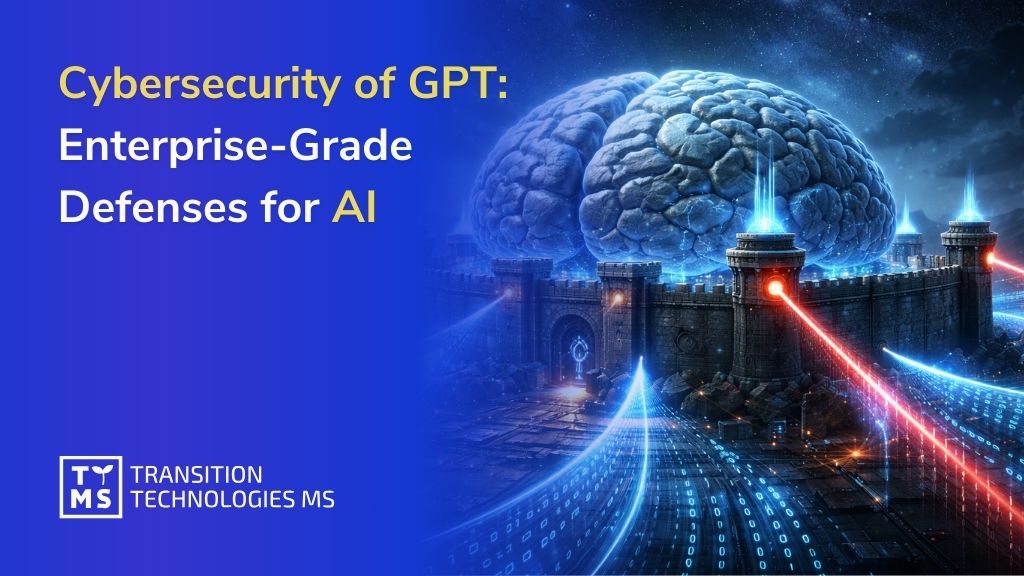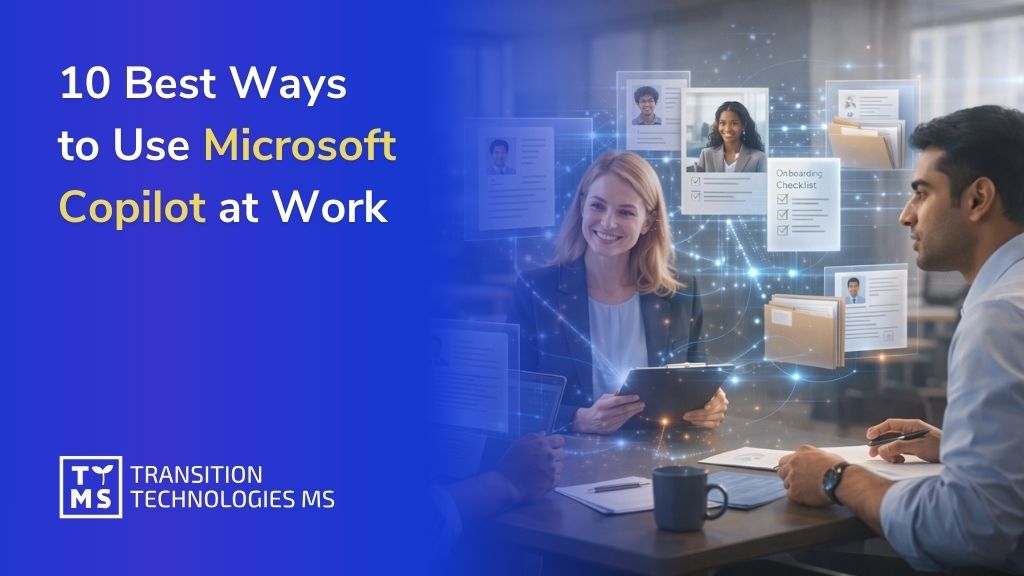In today’s rapidly evolving business landscape, employee training has become more crucial than ever. Organizations must ensure their workforce is equipped with the latest skills and knowledge to stay competitive. Traditional training methods often fall short due to their one-size-fits-all approach. However, AI-powered solutions are transforming how companies train their employees, offering personalized, engaging, and efficient training experiences. This article explores the need for improving employee training, the benefits of AI-powered solutions, and the various tools available to implement these advanced training programs.

1. Why Companies Should Invest in AI Employee Training?
More and more companies are now turning to AI training for employees to ensure continuous learning that adapts to individual needs and business goals. Traditional training methods, such as classroom-based instruction, e-learning modules, and on-the-job training, often struggle to meet the dynamic needs of modern workplaces. Challenges such as static content, lack of personalization, and limited engagement result in inefficient training outcomes. As workplaces evolve and skill requirements change, continuous learning and development become essential. Companies must find ways to provide effective training that can adapt to individual learning styles and pace, ensuring all employees stay updated and productive. One way to achieve this is through AI for employee training, which offers personalized, adaptive learning experiences that keep employees engaged and up to date with evolving workplace demands.
2. What Are AI-Based Training Solutions?
AI-driven employee training solutions leverage artificial intelligence to enhance various aspects of the training process. These solutions include features such as adaptive learning platforms, personalized content recommendations, real-time feedback, and interactive learning experiences. AI in employee training can analyze vast amounts of data to identify skill gaps, recommend tailored learning paths, and provide insights into employee progress and performance.
3. What Are the Benefits of AI-Powered Training Solutions?
- Personalized Learning Experiences: AI can tailor training content to meet the specific needs of each employee, providing a customized learning path that adapts to their pace and learning style.
- Enhanced Engagement and Interactivity: AI-powered tools offer interactive and immersive learning experiences, such as virtual simulations and gamified content, keeping employees engaged and motivated.
- Real-Time Feedback and Assessments: AI solutions provide instant feedback on training performance, helping employees identify areas for improvement and reinforcing learning through immediate application.
- Scalability and Flexibility: AI-driven training programs can easily scale to accommodate large numbers of employees, providing consistent training experiences regardless of location or time zone.
- Improved Retention and Performance: Personalized and engaging training helps improve knowledge retention and application, leading to better performance and productivity in the workplace.
4. How to Implement AI-Powered Training in Organizations?
To successfully implement AI training solutions, organizations should follow these steps:
4.1 Assess Training Needs and Objectives:
Conduct a thorough analysis of the organization’s training requirements and goals.
4.2 Select Appropriate Platforms and AI tools for training and development:
Choose AI tools that align with the specific needs and objectives of the training program. Below are some of the most effective AI-powered training tools:
- Vevox’s AI Quiz Generator: This tool helps create interactive quizzes that adapt to the learner’s progress, providing a personalized assessment experience.
- Axonify: Focuses on microlearning, delivering small, daily learning modules tailored to the needs of each employee, enhancing retention and engagement.
- Docebo: An AI-powered LMS that personalizes the learning experience and provides actionable insights through advanced analytics.
- EdCast: A knowledge-sharing platform that uses AI to recommend content and connect employees with experts, facilitating continuous learning.
- Coursera: Offers a wide range of courses and uses AI to suggest relevant learning paths based on user preferences and career goals.
- Pymetrics: Utilizes neuroscience-based games and AI to match employees with roles that suit their strengths and skills, enhancing training outcomes.
- Knowingo+: Employs gamification and AI to personalize learning experiences and track employee progress in real-time.
- Qstream: Uses spaced repetition and AI-driven analytics to reinforce knowledge and measure the effectiveness of training programs.
- Cornerstone OnDemand: An AI-powered platform that provides personalized learning recommendations and tracks employee development.
- Cegid: Offers cloud-based HR solutions with AI capabilities to personalize training and development programs.
- Skillsoft: Provides a wide range of courses with AI-driven recommendations to tailor learning paths for each employee.
- LinkedIn Learning: Uses AI to recommend courses based on the learner’s profile and career trajectory, ensuring relevant and effective training.
- TalentLMS: An LMS that leverages AI to create adaptive learning experiences and track progress.
- SAP Litmos: Provides AI-enhanced analytics to measure training effectiveness and personalize learning content.
- 360Learning: Uses AI to analyze learner data and deliver personalized training content, enhancing engagement and retention.
- Absorb LMS: An LMS that integrates AI to optimize learning paths and improve the training experience.
- LearnUpon: Combines AI with user-friendly design to deliver personalized training programs and track performance.
- Udemy for Business: Offers a vast library of courses with AI-driven recommendations to help employees find relevant learning materials.
- MindTickle: Focuses on sales training using AI to analyze performance and provide tailored coaching.
- Edmodo: A social learning platform that uses AI to enhance collaboration and personalize learning experiences.
- Blackboard: An educational platform that employs AI to provide adaptive learning and detailed analytics.
- Fuse Universal: Uses AI to analyze content and recommend personalized learning materials, fostering continuous learning.
- Pluralsight: Provides technology skill development with AI-driven course recommendations and progress tracking.
- Grovo: Delivers microlearning content with AI to personalize training and measure effectiveness.
4.3 Integrate with Existing Training Infrastructure:
Ensure the chosen AI tools seamlessly integrate with the current training systems and processes.
4.4 Train and Support Employees and Trainers:
Provide comprehensive training and ongoing support to both employees and trainers to maximize the benefits of the AI tools.
4.5 Monitor and Evaluate Effectiveness
Continuously assess the impact of AI-powered training on employee performance and make necessary adjustments to optimize outcomes.

5. Case studies and success stories
Many organizations have successfully implemented AI training for staff, witnessing significant improvements in training efficiency and employee performance. Here are some notable examples:
5.1 Axonify at Walmart
Walmart, one of the largest retailers in the world, implemented Axonify to enhance their employee training programs. By focusing on microlearning and delivering small, daily learning modules tailored to the needs of each employee, Walmart was able to significantly improve knowledge retention and engagement. The AI-driven platform helped Walmart reduce training time and costs while ensuring that employees were better prepared to serve customers.
5.2 Coursera at IBM
IBM partnered with Coursera to offer a wide range of courses to their employees. Using AI to suggest relevant learning paths based on user preferences and career goals, IBM saw a notable increase in course completion rates and skill acquisition. The personalized learning experience provided by Coursera allowed IBM employees to stay up-to-date with the latest technologies and industry trends, enhancing their productivity and innovation capabilities.
5.3 Pymetrics at Unilever:
Unilever utilized Pymetrics’ neuroscience-based games and AI to match employees with roles that suited their strengths and skills. This innovative approach not only improved the effectiveness of their training programs but also led to better job placement and employee satisfaction. Unilever reported a higher retention rate and increased overall performance by leveraging Pymetrics’ AI-driven insights.
5.4 LinkedIn Learning at Adobe
Adobe adopted LinkedIn Learning to provide personalized training to its workforce. By leveraging AI to recommend courses based on the learner’s profile and career trajectory, Adobe ensured that employees received relevant and effective training. The platform’s ability to track progress and measure the impact of training programs helped Adobe improve employee skills and drive business growth.
5.5 Qstream at MasterCard
MasterCard implemented Qstream to reinforce knowledge and measure the effectiveness of their training programs through spaced repetition and AI-driven analytics. This approach helped MasterCard improve employee engagement and retention of critical information. The AI-powered platform allowed MasterCard to identify knowledge gaps and provide targeted training, resulting in a more skilled and competent workforce.
5.6 Udemy for Business at PepsiCo
PepsiCo used Udemy for Business to offer a vast library of courses with AI-driven recommendations to their employees. This initiative enabled PepsiCo to provide continuous learning opportunities and stay competitive in a fast-changing market. The AI-powered platform facilitated better information management and quicker response to customer needs, leading to improved business outcomes.
5.7 Cornerstone OnDemand at Nestlé:
Nestlé implemented Cornerstone OnDemand to provide personalized learning recommendations and track employee development. The AI-powered platform helped Nestlé create adaptive learning experiences, improving employee engagement and performance. By centralizing all training data, Nestlé was able to streamline their training processes and ensure consistent learning across the organization.
These success stories highlight the transformative potential of AI for training in various industries. By leveraging AI to personalize and optimize training programs, organizations can significantly enhance employee performance, engagement, and satisfaction, leading to better business outcomes.
6. What Are the Challenges and Considerations of Implementing AI-Powered Training Solutions?
While AI-powered training solutions offer numerous benefits, organizations may face several challenges during implementation. One significant issue is data privacy and security. Ensuring the safe handling and storage of employee data is crucial, as AI systems often require access to sensitive information to function effectively. Organizations must implement robust security measures to protect this data and comply with relevant privacy regulations.
Accessibility and inclusivity also present challenges. AI tools must be designed to be accessible to all employees, including those with disabilities, to ensure an inclusive training environment. This means considering various accessibility standards and ensuring that AI-driven content is usable by everyone in the organization.
Finally, balancing AI and human interaction is a key consideration. While AI can significantly enhance training by providing personalized and adaptive learning experiences, human interaction remains essential. Mentoring, coaching, and addressing complex queries are areas where human trainers play a crucial role. Therefore, organizations must find the right balance between leveraging AI capabilities and maintaining the human touch in their training programs.
7. What Are the Future Trends in AI-Powered Employee Training?
The future of workplace learning is set to be increasingly influenced by AI technologies. Emerging trends include the use of virtual reality (VR) and augmented reality (AR) for immersive training experiences, predictive analytics to anticipate training needs, and the integration of AI with other emerging technologies to create more holistic learning environments. As AI continues to evolve, its role in employee training will expand, offering even more innovative solutions to meet the needs of modern workplaces.
One company preparing to adopt these future technologies is Accenture. Accenture is exploring the integration of VR and AR into their training programs to create immersive learning environments. These technologies could simulate real-world scenarios, providing employees with hands-on experience in a controlled setting. Additionally, Accenture is investing in predictive analytics to better understand and anticipate the training needs of their workforce, ensuring that employees receive the most relevant and timely training possible.
Another example is Deloitte, which is investigating the use of AI to create more personalized learning experiences. By leveraging AI to analyze employee data, Deloitte aims to deliver tailored training programs that adapt to the individual learning styles and progress of each employee. This approach not only enhances engagement but also improves the overall effectiveness of training initiatives.
These examples illustrate how leading companies are not only adopting current AI technologies but are also preparing to integrate cutting-edge tools that will shape the future of employee training. As these technologies become more accessible and advanced, we can expect a significant transformation in how organizations approach workforce development.
8. How TTMS Can Help Companies Implement AI-Powered Training Solutions
TTMS specializes in providing cutting-edge e-learning solutions tailored to the unique needs of each organization. Our expertise in AI-powered training tools can significantly enhance your company’s training programs, ensuring they are both effective and engaging. With a comprehensive suite of services, TTMS offers everything from the development and administration of e-learning platforms to improving internal communication and content management.
- Customized E-Learning Solutions: TTMS creates tailored e-learning content that leverages AI to adapt to individual learning styles and needs. Our solutions include interactive modules, virtual simulations, and gamified content that keep employees engaged and motivated.
- Comprehensive Administration Services: We provide full administrative support for your e-learning platforms, ensuring seamless integration with existing systems and smooth operation. Our services include user management, content updates, and troubleshooting, allowing your team to focus on core business activities.
- Enhanced Internal Communication: Effective training requires clear and consistent communication. TTMS offers tools and strategies to improve internal communication, ensuring that all employees are informed and engaged with the training content. Our AI-driven communication platforms facilitate real-time feedback and collaboration.
- Continuous Support and Improvement: TTMS is committed to your long-term success. We provide ongoing support and evaluation to ensure your training programs are always up-to-date and effective. By leveraging predictive analytics, we help you anticipate future training needs and make data-driven decisions to enhance your workforce development strategies.
With TTMS’s comprehensive e-learning services, your organization can harness the power of AI to transform employee training, improve performance, and achieve better business outcomes. Visit our e-learning services page to learn more about how we can help your company stay ahead in the ever-evolving business landscape.
9. Conclusion
AI-powered training solutions are transforming the way organizations train their employees, offering personalized, engaging, and efficient learning experiences. By leveraging AI tools for training and development, companies can enhance training outcomes, improve employee performance, and stay competitive in an ever-evolving business landscape. Embracing these advanced training solutions is not just a strategic advantage but a necessity for organizations aiming to thrive in the future.
Check our AI in e-learning case studies:
- Using AI in Knowledge Management in your Organization
- AI Corporate Training – Transform Your Workforce Today
- Unlocking eLearning Success Through AI Innovation
- Improve Employee Training with AI Training for Employees
FAQ
What is AI-powered employee training?
AI-powered employee training uses artificial intelligence to enhance the training process by providing personalized learning experiences, real-time feedback, adaptive learning paths, and interactive content. AI can analyze vast amounts of data to identify skill gaps and recommend tailored training programs.
How does AI improve employee engagement in training?
AI improves employee engagement by offering interactive and immersive learning experiences, such as virtual simulations and gamified content. Personalized learning paths and real-time feedback also keep employees motivated and involved in their training.
Can AI-powered training be customized for different industries?
Yes, AI-powered training solutions can be customized for various industries. AI tools can adapt to the specific needs and requirements of different sectors, providing relevant and industry-specific training content and experiences.
How do AI tools ensure the effectiveness of training programs?
AI tools ensure the effectiveness of training programs by continuously analyzing employee performance data, providing real-time feedback, and adjusting learning paths based on individual progress. This helps in identifying areas of improvement and ensuring that training objectives are met.
What types of content can be included in AI-powered training programs?
AI-powered training programs can include a variety of content types such as interactive modules, videos, quizzes, virtual simulations, gamified exercises, and real-time assessments. AI can also recommend additional resources based on learner needs.
How do organizations measure the success of AI-powered training?
Organizations measure the success of AI-powered training by tracking key performance indicators (KPIs) such as completion rates, knowledge retention, employee engagement, and performance improvements. AI analytics tools provide detailed insights into these metrics.
What are the cost implications of implementing AI-powered training solutions?
While the initial investment in AI-powered training solutions can be significant, organizations often see long-term cost savings through improved efficiency, reduced training time, and better employee performance. Many AI tools offer scalable pricing models based on the number of users.
Are AI-powered training solutions suitable for small businesses?
Yes, AI-powered training solutions can be suitable for small businesses. Many AI tools are scalable and offer flexible pricing, making it possible for small businesses to implement and benefit from advanced training technologies.
How do AI-powered training tools handle data privacy and security?
AI-powered training tools handle data privacy and security by implementing robust encryption, access controls, and compliance with data protection regulations. Organizations must choose reputable AI vendors that prioritize data security and privacy.
What are the future developments expected in AI-powered training?
Future developments in AI-powered training include the increased use of virtual reality (VR) and augmented reality (AR) for immersive learning experiences, enhanced predictive analytics for personalized training, and greater integration with other emerging technologies to create comprehensive learning ecosystems.






